Graham Reid | | 3 min read
John Mayall: Fly Tomorrow
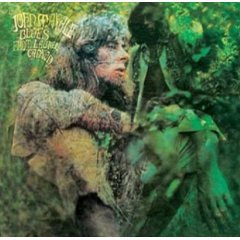
In the wake of '67s Sgt Pepper's the new thing in rock was "the concept album" and at the tail-end of that decade and well into the Seventies a long list of bands weighed in: the Pretty Things with SF Sorrow,The Who with Tommy, The Moody Blues, Genesis, Yes . . .
Mostly these were musicians with an art school background and so testing themselves over a 40 minute album was understandable, if not always forgiveable.
In that artsy context British bluesman John Mayall seems like an unexpected interloper in the field.
Yet in late '68 after disbanding his famous Bluesbreakers (in whose revolving-door ranks guitarists Eric Clapton and Peter Green, drummers Keef Hartley and Mick Fleetwood, bassist John McVie and Jack Bruce, and many other rock legends had played) Mayall took himself off to LA for a three week vacation.
Consider the musical context of LA: the Byrds, Frank Zappa, Captain Beefheart, Canned Heat, clubs on Sunset Strips . . . Then of course there was the weather, the young women (young was very much Mayall's thing), marijuana . . .
Blues From Lauren Canyon recounts his trip from departure (the opening lines are "ten hours in plane, England left behind") through Walking on Sunset, encounters with Zappa and Canned Heat (2401 and The Bear) and his return to England ("got to fly tomorrow, got to pack my gear, re-adjust my mind").
Even so, this isn't an album lumbered with a ponderous concept in terms of musical constraints.
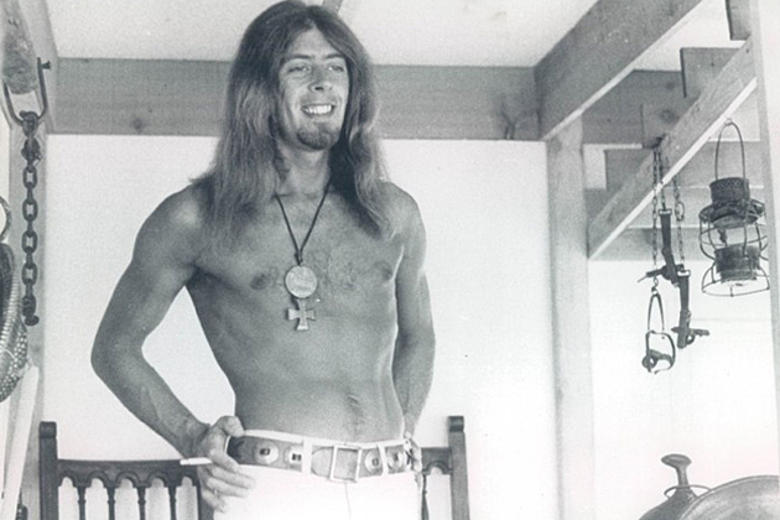 Mayall, feeling liberated of the weight and expectation of Bluesbreakers fans, found a freedom to explore his snapshot narratives in music which was often still grounded in the blues he loved, and yet at other times stretched out into new territories (notably on Medicine Man which adopts a Native American drum pattern and might just be the most musically interesting song ever written about catching a dose of venereal disease).
Mayall, feeling liberated of the weight and expectation of Bluesbreakers fans, found a freedom to explore his snapshot narratives in music which was often still grounded in the blues he loved, and yet at other times stretched out into new territories (notably on Medicine Man which adopts a Native American drum pattern and might just be the most musically interesting song ever written about catching a dose of venereal disease).
Mayall was also much older than his musical cohorts (he was 35 and his former guitarist Clapton was still only 23) and so wasn't easily swayed by the psychedelic scene. It also tells you something that he did the album in three days, about the time it took the Moody Blues to get a drum sound.
Laurel Canyon has blues at its core: you could imagine a Delta bluesman washed up in LA in '68 singing Walking On Sunset; the harmonica-driven Ready to Ride could have come from an early Sixties Bluesbreakers album and Miss James rocks out over Mayall's terrific r'n'b organ playing.
The Bear (which opens with the riff from Canned Heat's On the Road Again) hails the Heat's Bob Hite with boogie woogie piano; and the bass of young Stephen Thompson everywhere ripples across r'n'b patterns.
Former Bluesbreaker Peter Green guested on First Time Alone.
The key figure however was the new guitarist Mayall recruited, Mick Taylor whose searing style carves a swathe right through this album from the sting of Somebody's Acting Like a Child through to his improvisations on the nine minute Fly Tomorrow (which illustrates why the Stones like him so much they soon enough got him in the band and let him loose on material like Time Waits For No One.)
Less a concept album then than a collection of individually distinctive songs about what he did on his holidays, Blues From Laurel Canyon was a watershed album for Mayall who went on to make the jazz-influenced The Turning Point (no drummer) and for a long time only rarely kept a stable band together as he also shifted record labels frequently.
Dropping the Bluesbreaker name and going to LA seemed to have a major effect on his music and his approach to it.
After Blues From Laurel Canyon you can move forward into The Turning Point (and even Mayall's Eighties albums with another Bluesbreakers line-up when he had the superb guitarist Coco Montoya, proof that he could still pick guitar stars).
Orgo backwards to his seminal British blues albums like The Bluesbreakers With Eric Clapton ('66), and A Hard Road and Crusade (both '67).
Of course you could follow the trails into Canned Heat and Frank Zappa of the period, trace guitarist Taylor's short but stellar career in the Stones, or better still seek out the great blues musicians whose songs Mayall covered or those he paid tribute to: Willie Dixon, Elmore James, Sonny Boy Williamson, Otis Rush, Freddy King . . .
Your work begins here with John Mayall's vacation.
.
John Mayall died in July 2024. He was 90.
.
The 2008 reissue of Blues From Laurel Canyon comes with extra tracks (the single edit of 2401 and an eight minute live version of Wish You Were Mine from a European tour), plus lyrics and extensive essay about the album and Mayall during this period.
These Essential Elsewhere pages deliberately point to albums which you might not have thought of, or have even heard . . .
But they might just open a door into a new kind of music, or an artist you didn't know of. Or someone you may have thought was just plain boring.
But here is the way into a new/interesting/different music . . .
Jump in.
The deep end won't be out of your depth . . .

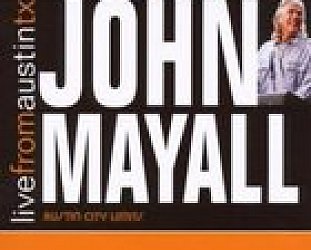
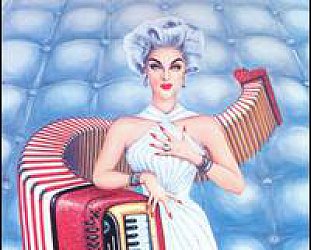
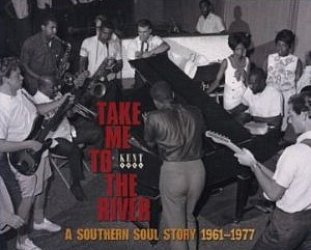

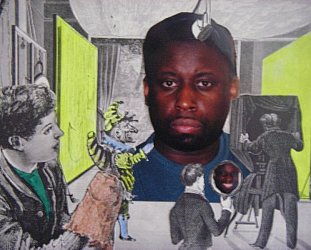
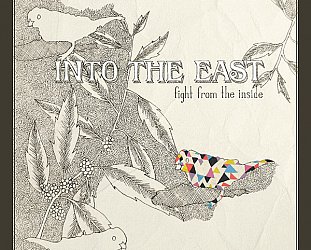
rik hultberg - Mar 17, 2009
i used to hitchhike from granada hils over laurel canyon to sunset and go to the whiskey. i saw fleetwood mac pre s nicks, buckingham; mountain, flying burrito bros, and john mayall. he wore a cowboy type belt with about 20 harmonicas in place of ammo. then he went back to uk and wrote LKB about his trip. this is why i relate so strongly with many of the songs, from the opening mick t. guitar solo to "walking on sunset" and "the bear" and "medicine man" and "the first time alone". It is an under-rated album that everyone should listen to, close their eyes and try to envision these true stories of his first trip to the U.S.
SaveRob Crossland - Mar 18, 2009
This is one of my favourite albums of all time. I was 15 and an older boy at school lent it to me.
SaveThe sun is shining down, and the Bear, He's rollin' in the shade.
Just wonderful. A magical time for music and western youth culture.
God bless you, Bob. I'll never forget to boogie.
Duncan McKenzie - Aug 5, 2009
Yes, John Mayall does lead to some interesting trails. At school in the 60s, pretentious kids like me spurned the Rolling Stones vs Beatles thing, we went for John Mayall and Bob Dylan. Later, I got the chance to see him and his Turning Point band at the YMCA in Auckland. Support was provided by an arty young band with satin pants and recorders. They were called Split Ends.
SaveDidn't Johnny Almond, sax in the JM band, end up living in NZ? and didn't Steve Braunias get into trouble, on inheriting his PO Box, for opening JA's royalty cheque?
post a comment